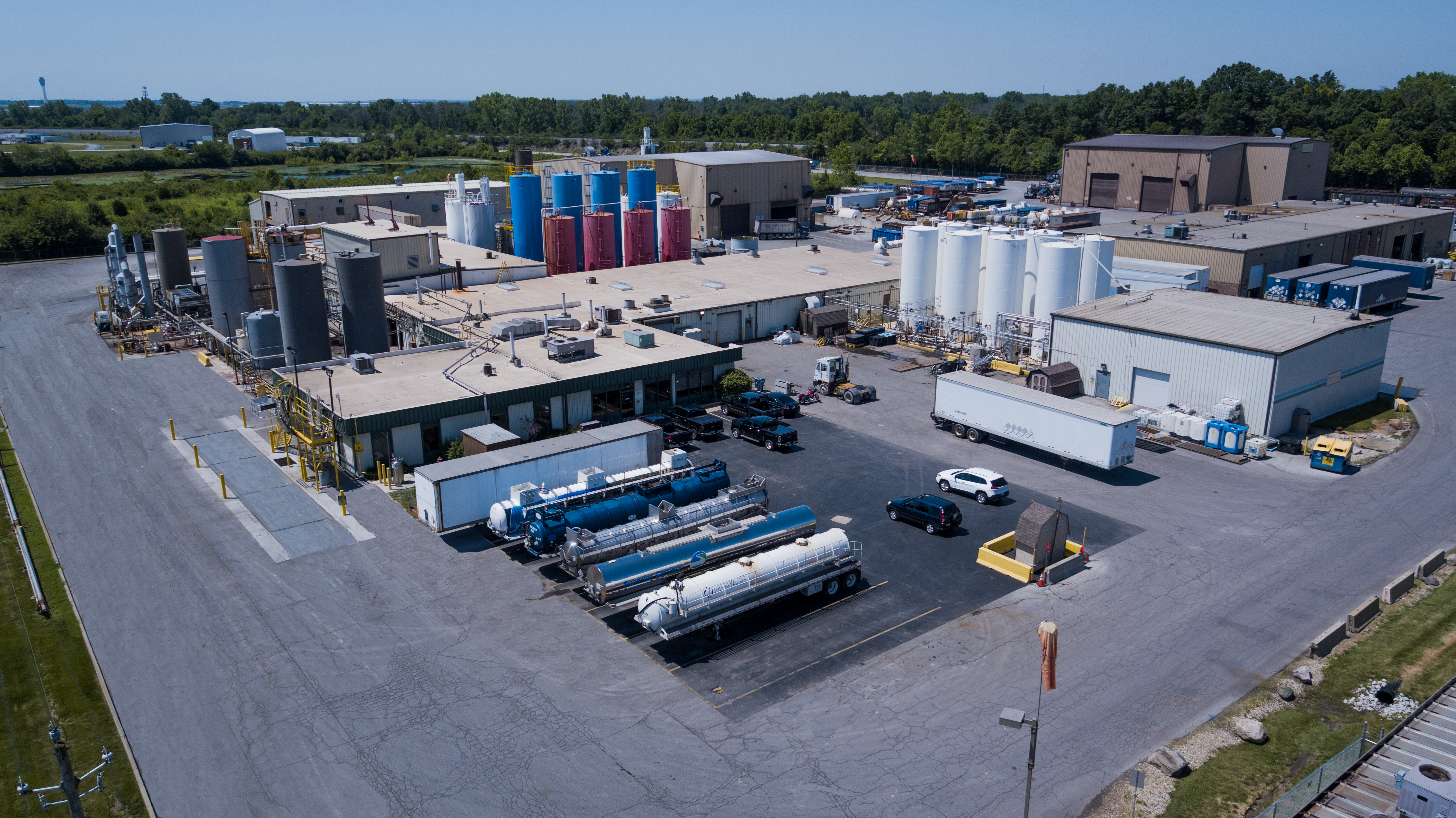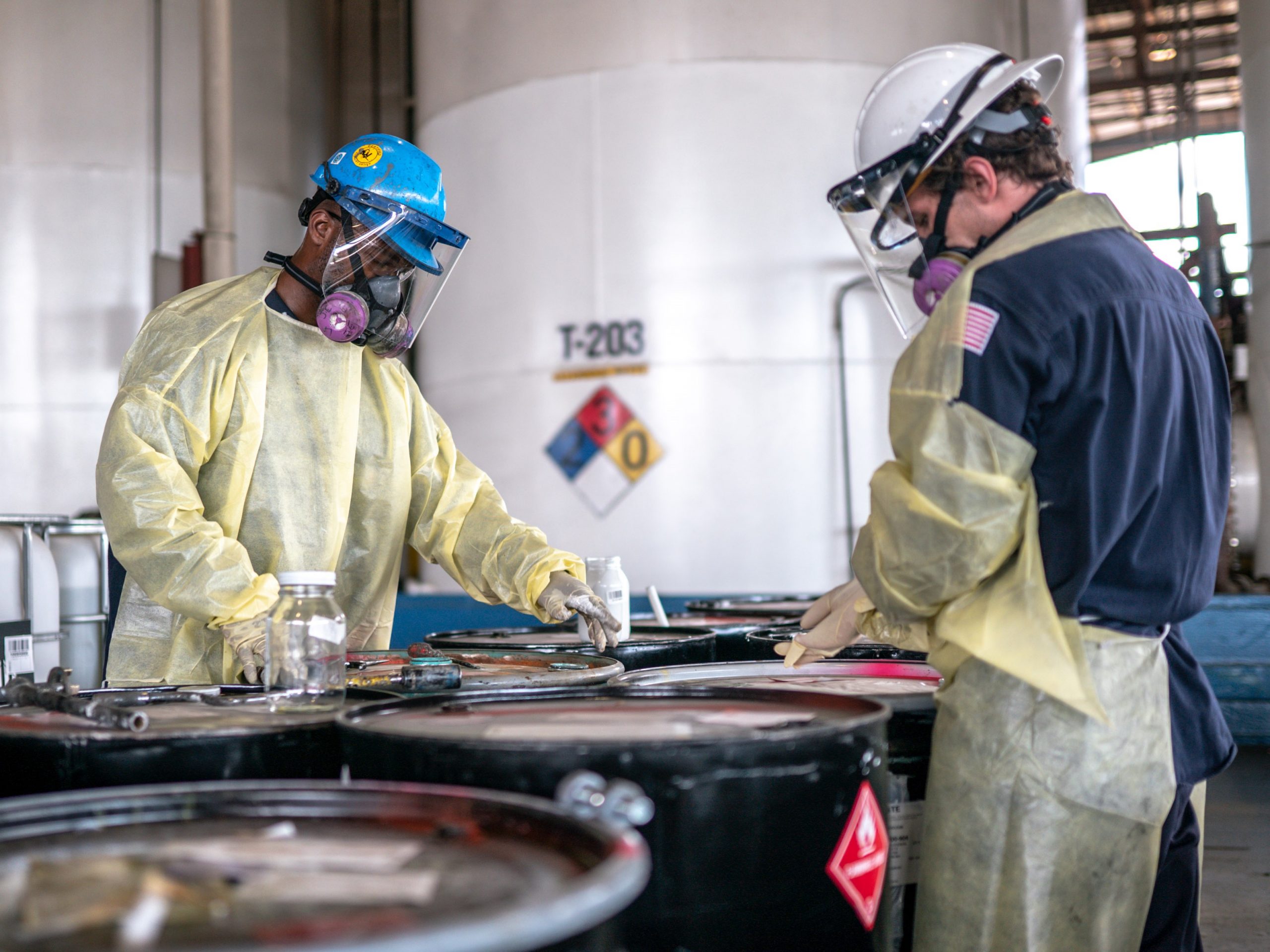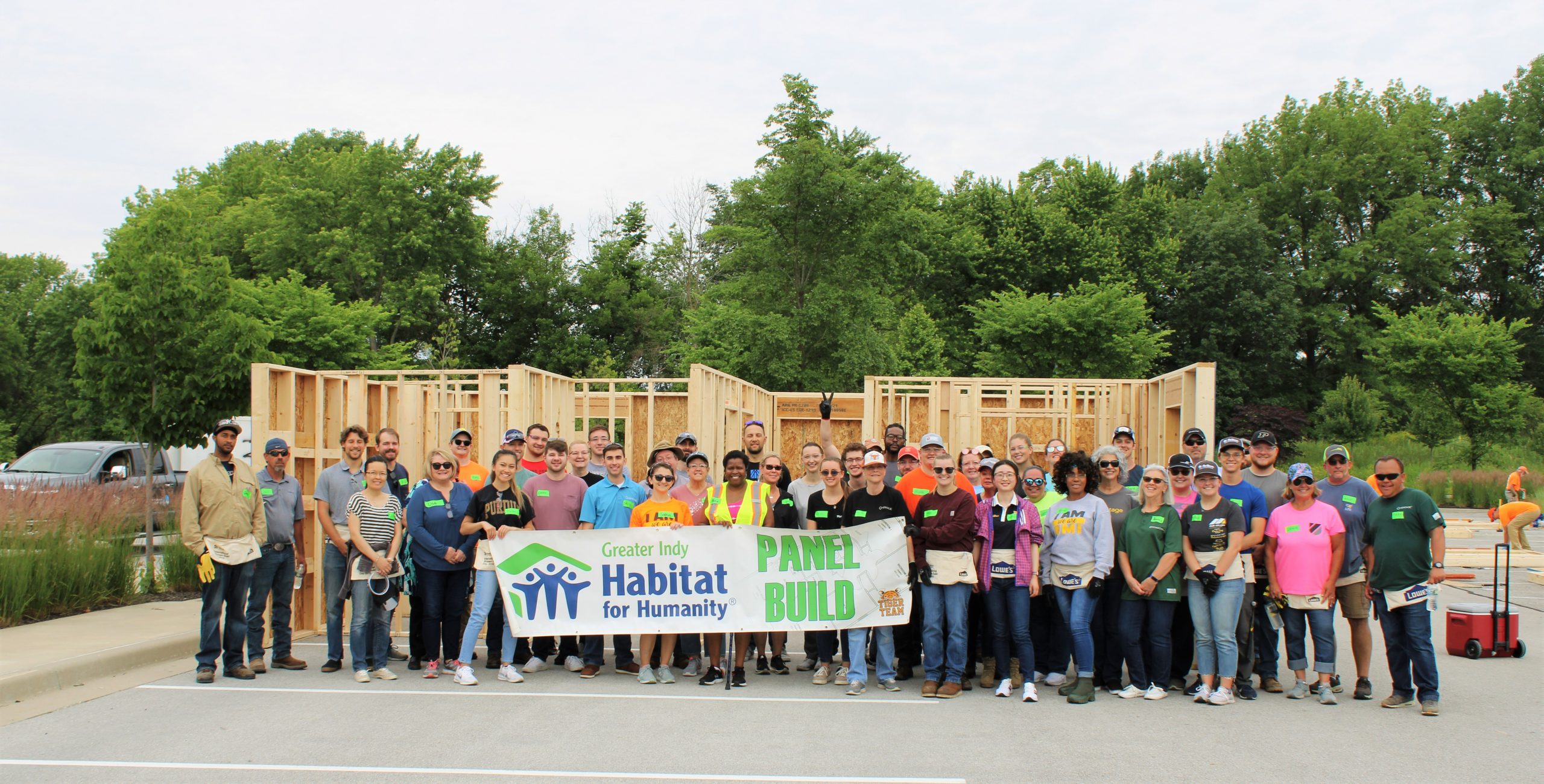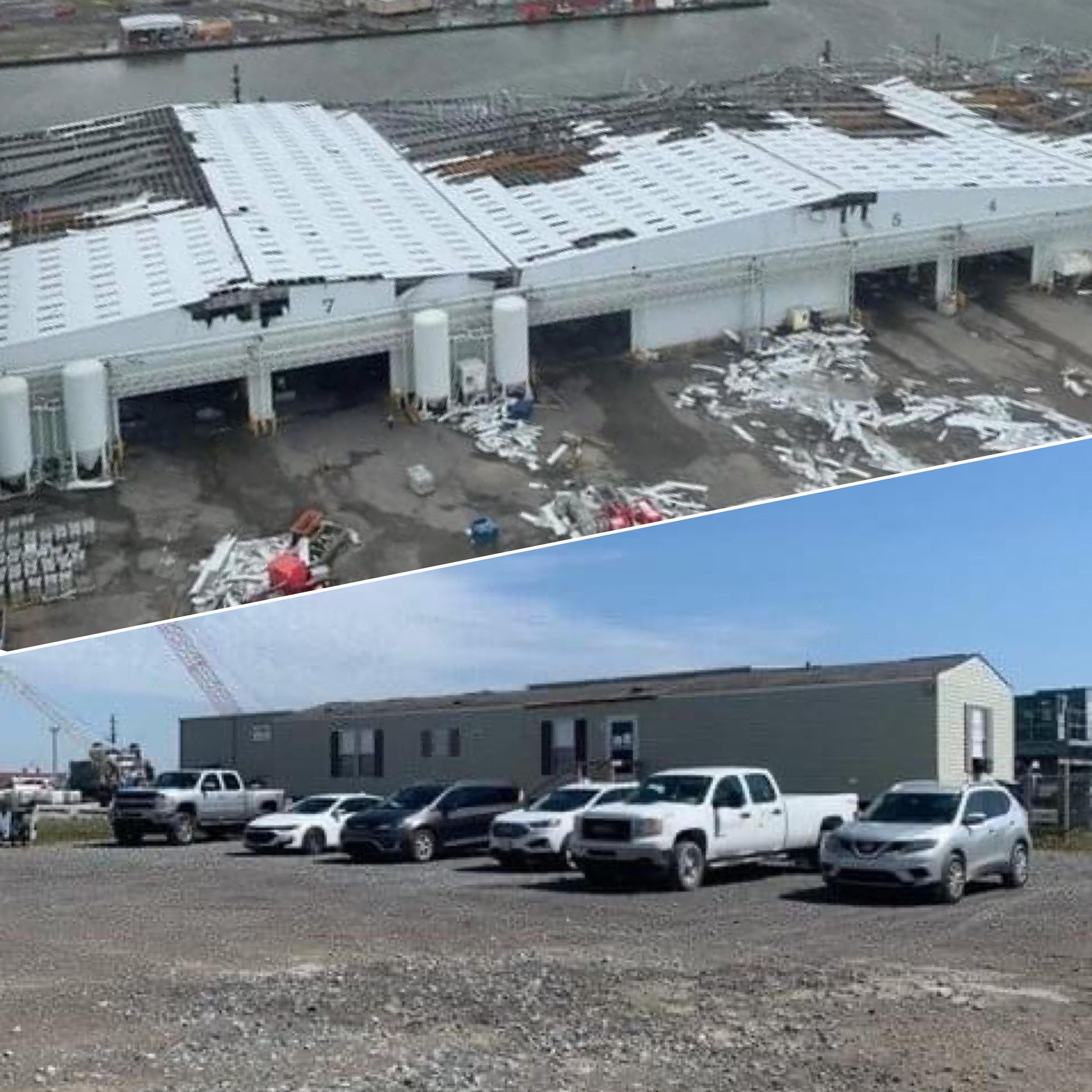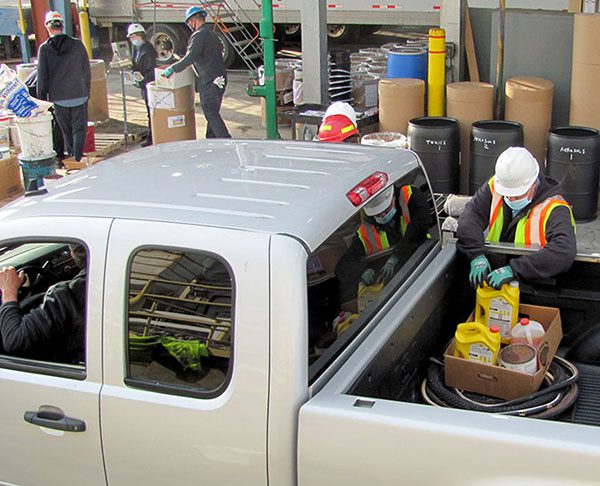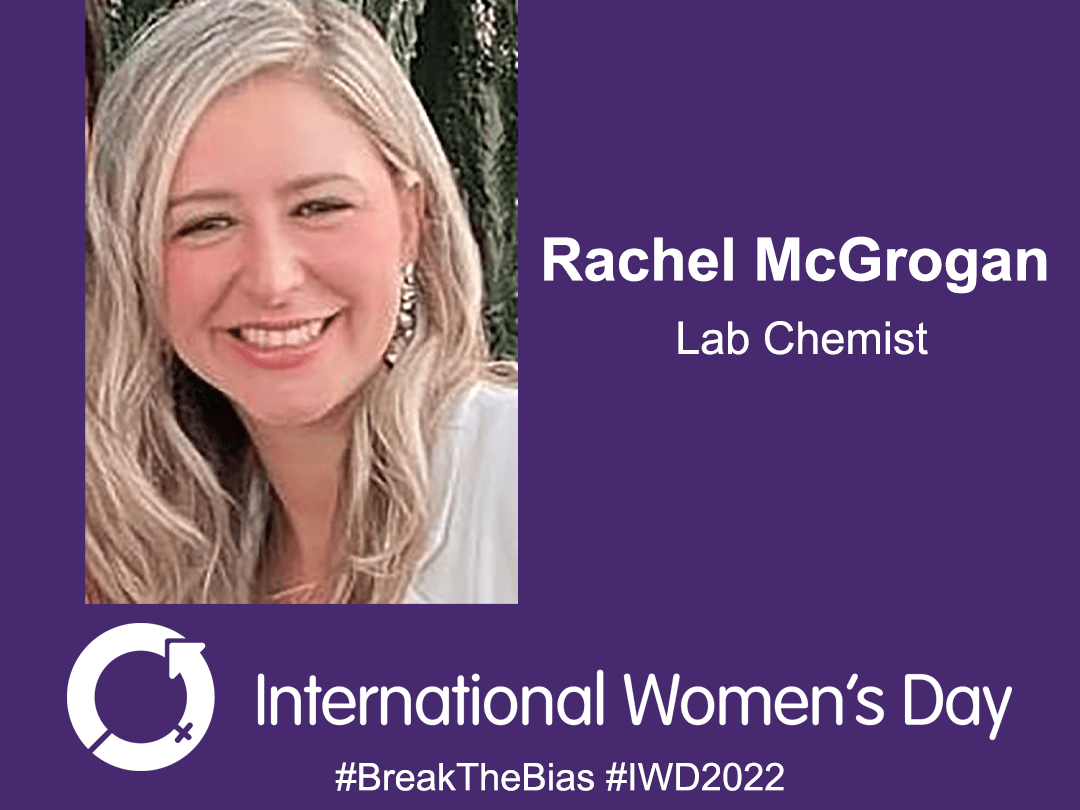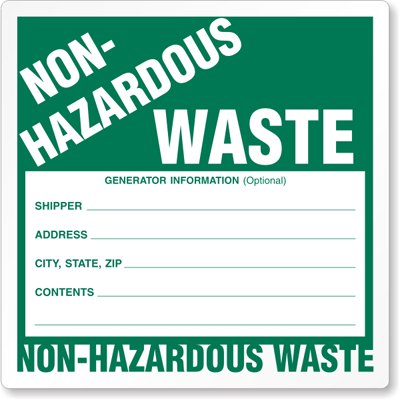
Continuing our series of things you think you know about hazardous waste, this week Heritage Compliance Manager Mike Karpinski wrote about another common hazardous waste misconception. The idea that all non-hazardous wastes are “safe.”
This is the opposite side of last weeks post about all hazardous wastes being dangerous. As far as safety is concerned, it is even more important that people working with wastes understand that just seeing a “Non-Hazardous” or “Non-Regulated” sticker on a container does not mean it is not a dangerous material or is not subject to other regulatory programs.
These lables are simply regulatory classifications that guide the management of such materials. Often times, a material labeled “non-hazardous” can present an equal health or physical hazard to persons working with it as something marked hazardous (remember the story about the swimming pool from last week). Physical and chemical hazards associated with materials have thresholds established by the regulations for classification of waste.
For example, a liquid is considered hazardous waste when it has a flash point less than 140 degrees Fahrenheit by a specified testing protocol. A flashpoint is the temperature at which a particular organic compound gives off sufficient vapor to ignite in the air. Using the flashpoint criteria, gasoline would be a hazardous waste based on flash point, but used motor oil typically would not. That being said, we must note that both of these materials should be handled with care not only from an environmental perspective but from a fire hazard perspective.
More News From Heritage
-
Published Articles 8/2/22
How Safety, Maintenance, and Reliability Are Intertwined
VP of Health and Safety Jim Mangas discusses the importance of plant safety, maintenance, and reliability (featured in BIC Magazine July/Aug '22)
-
Blogs 7/28/22
Spotlighting Our Environmental Interns
Highlighting some of the wonderful interns we have at Heritage this year!
-
Blogs 7/11/22
Turning Hazardous Waste into an Alternative Fuel
In this blog we walk you through the process of fuel blending, where we can turn hazardous waste materials into a viable alternative fuel source.
-
Community News 6/15/22
2022 Habitat for Humanity Build
Our 12th annual Habitat for Humanity Build
-
Blogs 4/13/22
After Hurricane Ida, Our Port Fourchon Office Rebuilds
On August 28th, 2021, the Louisiana coast was battered by Hurricane Ida. This included our Port Fourchon Service Center, where the devastating hurrica
-
Community News 4/7/22
Heritage readies for Earth Day HHW collection in East Liverpool
Heritage Thermal Services is pleased to announce that its collection of household hazardous wastes for the East Liverpool area returns for 2022.
-
Published Articles 4/2/22
The Impact of Changing Conditions
VP of Health and Safety Jim Mangas discusses preparedness for unexpected conditions during a project. (featured in BIC Magazine March/April '22)
-
Blogs 3/11/22
International Women’s Week Spotlight – Rachel McGrogan
Rachel McGrogan speaks about her time as a Lab Chemist at Heritage.
